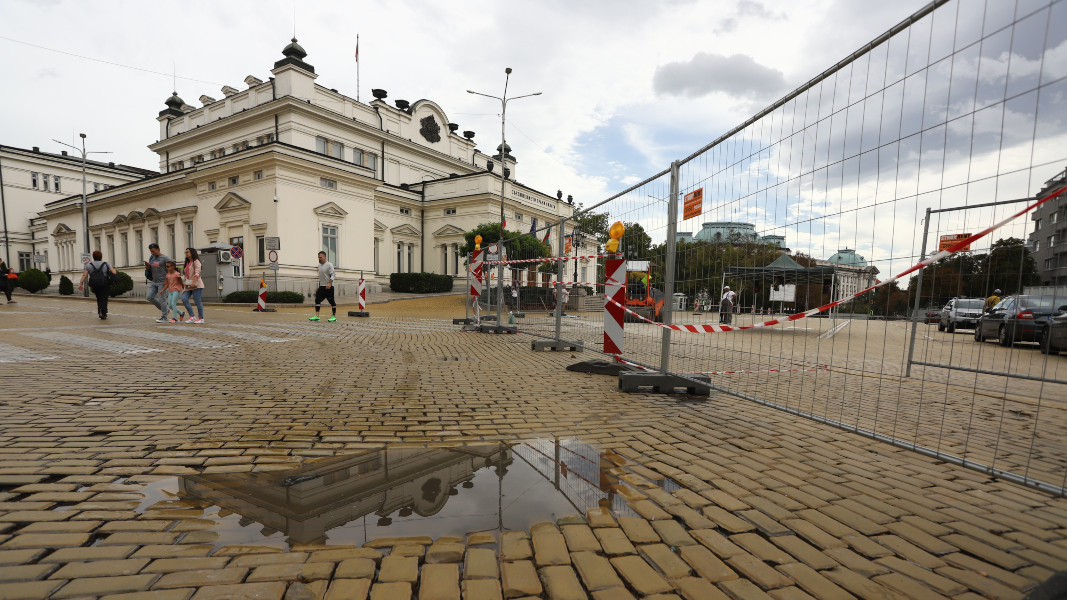Author: Francesca Marasi
Committee: Art & Cultural Heritage crimes Committee
Date: 05/02/2025
The “yellow brick road case”
“Yellow brick road” is the code-name of the investigation started ex officio by The European Public Prosecutor’s Office in Sofia, in autumn 2022.
The issue concerns a possible corruption and misuse of the EU funds to renovate the Capital’s historic center, including the famous yellow paved street.
Eppo estimated a damage of at least 3 million euros, due to a possible corruption and a mismanagement of not only the funding allocated to Sofia’s city municipality, but also the co-financing by the European Regional Development Fund (ERDF).
Historical background
In 1878, as Bulgaria became de facto an independent state, the new Capital needed to be redesigned and rebuilt. The roads were being built with granite, sourced from a local quarry, but the mayor, Martin Todorov, had bigger ambitions: he ordered that they needed to look distinct, more eye-catching and unmistakably Sofian.
New yellow ceramic cobblestones were ordered from Hungary and transported by train to the Capital.
In 1907, they were used to cover around 30,000m2 that were shining vividly in butter yellow. Therefore, it is clear to see how this road is strongly linked to Bulgaria’s history and how significant it was in showing the prosperity and magnificence of the new Capital.
Indeed, on 5 October 1908 (observed on 22 September), Ferdinand Saxe-Coburg and Gotha-Koháry¹ declared Bulgaria’s de iure independence from the Ottoman Empire. He likewise declared Bulgaria a Kingdom and took on the title of Tsar – an intentional reference to the leaders of the previous Bulgarian States.
Sadly, nowadays, there are only a few areas where this iconic flooring is visible, due to World War II’s severe impact on the city that left many of its unique yellow stones irreparably damaged.
The contracts under examination by EPPO
| 2018 | First contract for the restoration of the central area of Sofia between Sofia municipality and a first commercial company, following public procurement procedures. |
| 2020 | The contract was terminated by mutual agreement, because of the lack of compliance between the conditions of the contract and the investment project. |
| Around 3 million euros was paid to the contractor | |
| The municipality signed a new agreement with a second contractor, requesting an advance payment of 750 000 euros, in order to restore the yellow paving blocks in Sofia.
The amount has not been paid yet. |
Despite the conclusion of this series of contracts, the renovation works were not effective. The Bulgarian Ministry of Regional Growth and Development noticed that cobblestones were poorly laid and there were also cracked paving blocks.
According to the investigation, the falsified documents submitted by the contractors and the lack of checks by the city municipality caused poor quality rehabilitation works of the iconic cobblestones, dating from 1908, and led to undue payments.
The importance of EPPO’s intervention
The role of EPPO and of the Bulgaria’s General Directorate Combating Organised crime, a specialized operation and search service of the Ministry of Interior engaged in the search for documents and evidence related to the implementation of this fraudulent project, are essential in order to investigate the misuse of European funds and to avoid the generation of additional costs for the European budget.
¹ Ferdinand I was Prince of Bulgaria from 1887 to 1908 and Tsar of Bulgaria from 1908 until 1918.
Sources:
– https://www.sofia.bg/web/sofia-municipality/the-yellow-paving-blocks
Images:
– https://www.poandpo.com/news/bulgaria-eppo-probes-into-corruption-and-misuse-ofeu-funding-for-restoration-of-sofias-historic-centre/ – https://images.app.goo.gl/ad7giPUqJvXjMYkbA


